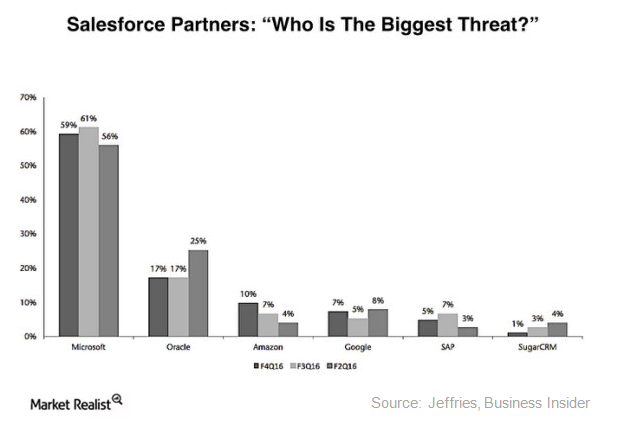
While IBM is finding ways to keep itself alive (like a 7 year deal with WorkDay), it is also finding ways to keep people alive (see Japanese diagnostic article).
Oracle is trying to do good things for this world by opening a high school on its campus, but then they wipe out their karma by trying to sue google a third time over Java.
Microsoft bought a company from a 17-year-old kid, SalesForces bought a company called BeyondCore, and Cisco might eliminate 14,000 5,500 jobs.
IBM
- IBM Inks Deal with Workday for Cloud Computing
IBM (NYSE: IBM) today announced Workday, a leading provider of enterprise cloud applications for finance and human resources, has adopted the IBM Cloud as part of a multi-year strategic partnership. IBM Cloud will become the foundation for Workday’s development and testing environment providing Workday with greater efficiency, flexibility, and global scale.
http://blogs.barrons.com/techtraderdaily/2016/08/15/ibm-inks-deal-with-workday-for-cloud-computing/
Why the Workday cloud deal is good for IBM in RTPIBM Cloud will become the foundation for Workday’s development and testing environment, and it’s a big, long-term win for IBM. Workday picked Big Blue over some competitors such as Microsoft and Amazon Web Services (where it already runs part of its business).
As part of the arrangement, IBM’s platform-as-a-service cloud development tool, BlueMix, will supply many of the services Workday will require.
- IBM’s Watson Diagnosed Patient in Ten Minutes
After months of physician-failed diagnosis, a super computer steps in and saves the life of a female patient from Japan, suffering from leukemia.
IBM Watson Health has committed to developing a partnership between humanity and technology with the goal of transforming global health. With the ability to read 40 million documents in 15 seconds, IBM’s Watson –super computer powered with artificial intelligence- studied the patient’s medical records for ten minutes and was able to compare her type of cancer against 20 million oncological records, according to International Business Times.
Physicians in Japan decided to try out IBM’s Watson on patients after all other treatment options had failed. The Watson revealed that the patient’s condition was another form of leukemia and required a different treatment from the one originally prescribed. So far, this is proving to be a life-saving approach.
http://www.medicaltourismmag.com/ibms-watson-diagnosed-patient/
- As census failure blame points at IBM, why we shouldn’t be surprised by its failings
IBM has already been banned from being allowed to work with Queensland State departments after its A$1.25 billion payroll failure in 2013.
The fact that IBM may be at fault in this particular software project should not come as a surprise. Firstly, software projects are generally hard and there is evidence that a majority will fail for a variety of reasons, but a principle one being failure to capture all of the requirements correctly. This certainly appears to be the cause in the poor preparation for the eCensus project.
- CEO Ginni Rometty Tells Bloomberg Businessweek How IBM Plans to Compete With Google
She told Chafkin that she views IBM as “the grown-up company” to the startup tech companies. She said people from Google and Facebook come to IBM because “they really want to have an impact on serious things.”
In other words, you can work on an app at Google or you can help move jet planes around at IBM, Chafkin explained.
Oracle
- Oracle builds a high school on their campus
Oracle knew it had to be part of this new way of teaching, modeled after Stanford’s school of design. “It’s not a production design or fashion design or interior design. Design thinking is a way to solve a problem,” Design Tech High School executive director Ken Montgomery said.
Problems like global warming. “A lot of our programs and how we learn are done through projects. It’s not like you are sitting in a classroom getting a lecture, you’re doing a hands-on activity to help reinforce what you are learning in the classroom,” student Nick Dal Porto said.
- Can NetSuite Take Oracle to $10 Billion in SaaS Revenues?
Oracle is already the number two player in ERP after SAP, but they have half the market share than the German software company. The Global ERP market is expected to reach $41.69 billion by 2020 and the only real competitors in this space are SAP and Oracle.
Now that NetSuite has joined hands with Oracle, they have a real shot at closing the gap with the industry leader SAP.
http://www.nasdaq.com/article/can-netsuite-take-oracle-to-10-billion-in-saas-revenues-cm664999
- Oracle craves cloud companies
Oracle follows a familiar pattern of either acquiring companies that bolster its existing market position in areas such as ERP or CRM, or buying firms that help it fill in gaps in the company’s broad portfolio, says Gartner analyst Chad Eschinger, who covers the company closely. In chronological order, CIO.com explores 10 key cloud deals Oracle has made over the years.
- Oracle accuses Google of lying during Java copyright trial
Oracle is now planning to appeal the verdict after already seeking a new trial, on the grounds that Google presented so little evidence during the trial to support its case that Oracle should win, despite the jury’s findings. Furthermore, the corporation hasn’t ruled out filing a new claim against Google’s Chrome OS, for infringing on its copyright in the desktop space. Despite the recent verdict, it doesn’t appear that this dispute will be going away any time soon.
http://www.androidauthority.com/oracle-accuses-google-lying-710870/

Microsoft
- MIT and Microsoft unveil on-skin device controlling technology
The fact is that “DuoSkin” is the name of the whole project and process, the tattoo just happens to be the physical vehicle for it. Cindy Hsin-Liu Kao, a Taiwan native, explains on a video how in her homeland “flash tattoos” are a highly popular and cheap way to express yourself, and how she wanted to capture that same essence to make a real breakthrough in wearable technologies.
With this in mind, the “DuoSkin” technology relies on any graphic design software to create the tattoo, a regular printer to print the design on tattoo paper, a vinyl cutter to cut it out, and then gold leaf film to trace the tattoo once again for the final product. The user just haves to apply the metallic-looking design onto their skin like they would do with any other temporary tattoo: just a gentle rub and some damp cloth to turn your skin into a computer interface.
http://theusbport.com/mit-microsoft-unveil-on-skin-device-controlling-technology/13020
- Microsoft acquires Beam, will compete against Twitch
How long has Beam been around for? Not long, with the company launching in January, with over 100,000 users joining the service in the last few months. Beam also won TechCrunch Distrupt’s $50,000 prize startup competition in May.
Chad Gibson, a partner group program manager at Microsoft’s Xbox Live division said in a statement: “We at Xbox are excited about this convergence between playing and watching, and want to provide gamers with the freedom and choice to have great multiplayer experiences across all of Beam’s platforms. This acquisition will help gamers enjoy the games they want, with the people they want, and on the devices they want”.
http://www.tweaktown.com/news/53397/microsoft-acquires-beam-compete-against-twitch/index.html
- Microsoft Corporation (MSFT) Buyout of LinkedIn Starting to Look Even Smarter
LinkedIn finished with adjusted EBITDA of $292 million and non-GAAP net income of $153 million. Although a non-cash charge of $101 million led to a GAAP net loss of $119 million, that’s a one-time charge and LinkedIn appears poised to start reporting a GAAP net profit consistently. Some cost synergies brought about by the merger might help the company achieve profitability even sooner.
Additionally, investors should note that MSFT might not even have contemplated a merger during LinkedIn’s better times — LinkedIn stock was already down 40% YTD before the deal was announced.
That said, with a fast-growing top line as well as a rapidly expanding bottom line, there’s a solid chance LNKD might be able to pay for itself and Microsoft might not have to make another huge write-off a la Nokia, and it could avoid damaging investor confidence in Microsoft stock.
http://investorplace.com/2016/08/microsoft-stock-msft-linkedin-buy-smarter/
Storage
- New HPE releases bring enterprise-level storage to SMB market
The Palo Alto, Calif.-based IT giant, which spun off from the original Hewlett-Packard Company last year, released two new storage solutions today – the flexible hybrid cloud-based StoreVirtual 3200 and solid-state drive (SSD) based MSA 2042 – specifically aimed at helping SMBs modernize their on-site infrastructure without breaking the bank.
http://www.itbusiness.ca/news/new-hpe-releases-bring-enterprise-level-storage-to-smb-market/77816
Other
- Cisco Reportedly Plans To Lay Off About 14,000 Employees, Or 20 Percent Of Its Workforce
San Jose, California-based Cisco is expected to announce the cuts within the next few weeks, the report said, as the company transitions from its hardware roots into a software-centric organization.
http://www.huffingtonpost.com/entry/cisco-layoffs_us_57b41185e4b0b42c38af4683
IT professionals: Time to brace for more layoffsChowdhry said he expects job cuts to rise drastically as more companies subscribe to “super cloud” services from the likes of Amazon and Microsoft . These services manage hardware, software, networks and databases and eliminate the need for workers to manage various technology layers, Chowdhry said.
In January, Chowdhry estimated that layoffs in the tech industry would hit 330,000 this year. On Wednesday, he said he had raised his estimate to 370,000. Some other analysts said that forecast was too bleak.
- Why Hewlett Packard Enterprise bought SGI
So why would HPE, which split from HP last year and has since been spinning off units at a regular pace, suddenly be buying SGI? Particularly as it’s only a week since rumours began to swirl that HPE was itself about to be bought by private equity firms.
The answer, it would seem, is to fully ground itself in the growing areas of big data, AI and HPC.
In its announcement of the acquisition, HPE itself referenced SGI’s HPC and big data analytics credentials, with the executive VP and GM of the company’s enterprise group, Antonio Neri, saying: “At HPE, we are focused on empowering data-driven organisations. SGI’s innovative technologies and services, including its best-in-class big data analytics and [HPC] solutions, complement HPE’s proven data centre solutions.”
http://www.itpro.co.uk/strategy/27085/why-hewlett-packard-enterprise-bought-sgi
- Salesforce gobbles up analytics outfit BeyondCore (for undisclosed sum)
BeyondCore touts its tight integration with Microsoft Office with its ‘BeyondCore Apps for Office’ solutions. It looks as though the firm will have a degree of autonomy post-completion, but it will be interesting to see what happens to this integration moving forward.
- Amazon Takes Shot At Microsoft And IBM With Its Latest Analytics Service
Real-time stream analytics are certainly a big deal for customers running IoT, gaming, and AdTech solutions in the cloud. It provides an opportunity to query the never ending stream of data, which is always in motion. For example, with stream analytics, Uber can easily find out how many taxis crossed a specific tollgate in the last 10 minutes. Also known as fast data, real time streams are becoming an essential element of enterprise Big Data strategy.
- Will IBM Edge Trounce HPE Discover Again This Year?
While IBM continues to execute on game changing unique technologies like Watson, its Open Power initiative, and its impressive move to turn infrastructure capability into a competitive advantage, HPE has failed to deliver on Moonshot, Memristor, and Itanium—its answer to IBM’s Power—is effectively a dead technology. In fact, most of HPE’s acquisitions since Whitman appear to be in some form of distress.
http://techspective.net/2016/08/15/will-ibm-edge-trounce-hpe-discover-year/
Photo: Mike Wilson









